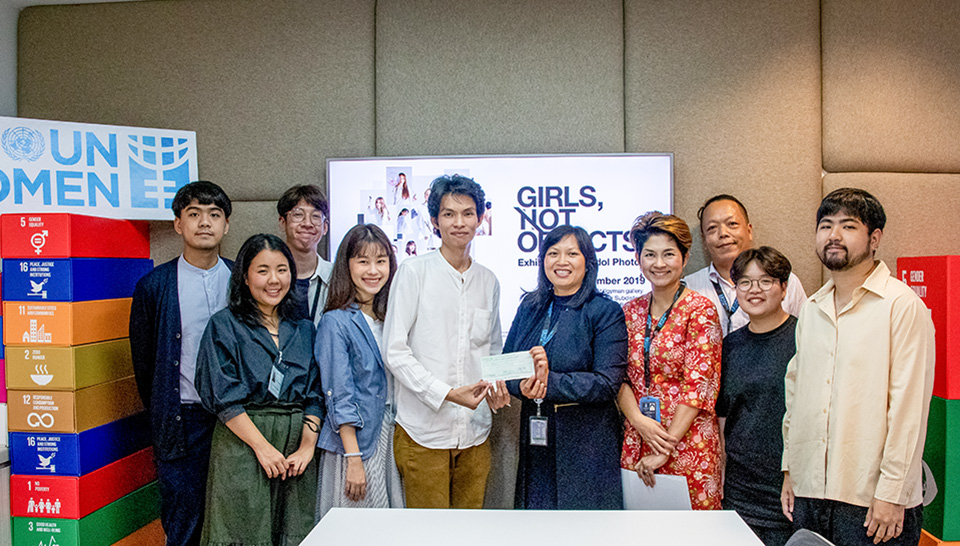Thai student photo exhibition shows that female entertainers are ‘NOT OBJECTS’
Date:
Author: Hansol Park
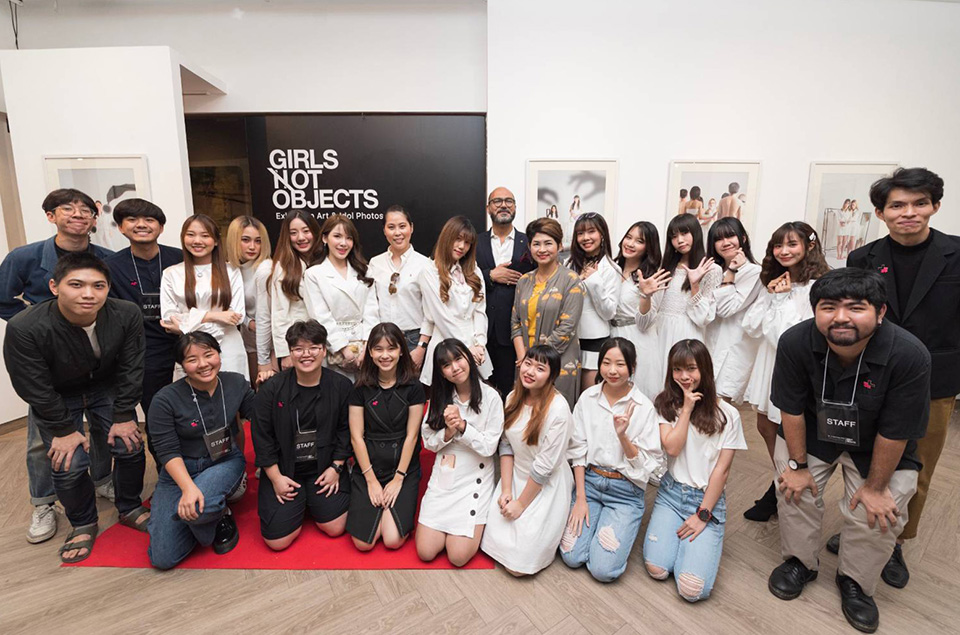
Bangkok, Thailand — Many people may adore the young female singers who enjoy the bright lights and legions of fans. But there’s another side that few people ever think about: These “idols” often are treated by society as mere sexual objects and not human beings with dignity and rights.
Undergraduates from two leading universities in Bangkok created a photo exhibition called GIRLS, NOT OBJECTS to try to raise awareness about this harmful “objectification culture” in Thailand’s entertainment industry.
With UN Women’s support, the student groups IKIGAI from Silpakorn University and Murasaki Studio from Chulalongkorn University mounted the exhibition at Joyman Gallery in Bangkok last November 16-17. They raised 20,000 baht (about USD660) from selling photo sets and cards made with artists and donated it to UN Women to help victims of sexual violence in Thailand.
Araya Rungapinya, an IKIGAI member and a manager of the exhibition, said: “We can see that sexual objectification often happens to teenage idols in the entertainment business in many forms, especially on social media. … We hope to be a small voice in our society to speak up about the problem of objectification of women and girls.”
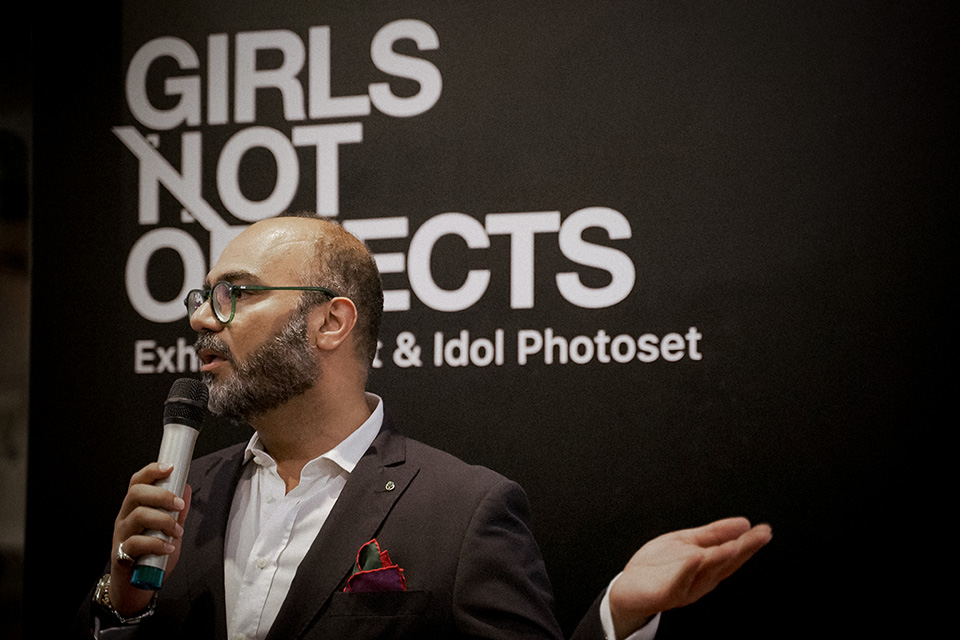
Mohammad Naciri, Regional Director of UN Women Asia and the Pacific, attended the exhibition along with other UN Women staff members. Sexual objectification contributes to gender stereotypes that make violence against women and girls seem more “normal” in society, he said.
The student exhibition organizers said the female artists are devalued and treated as objects through various means including cyberbullying, social expectations of public figures, and the marketing methods of the entertainment industry.
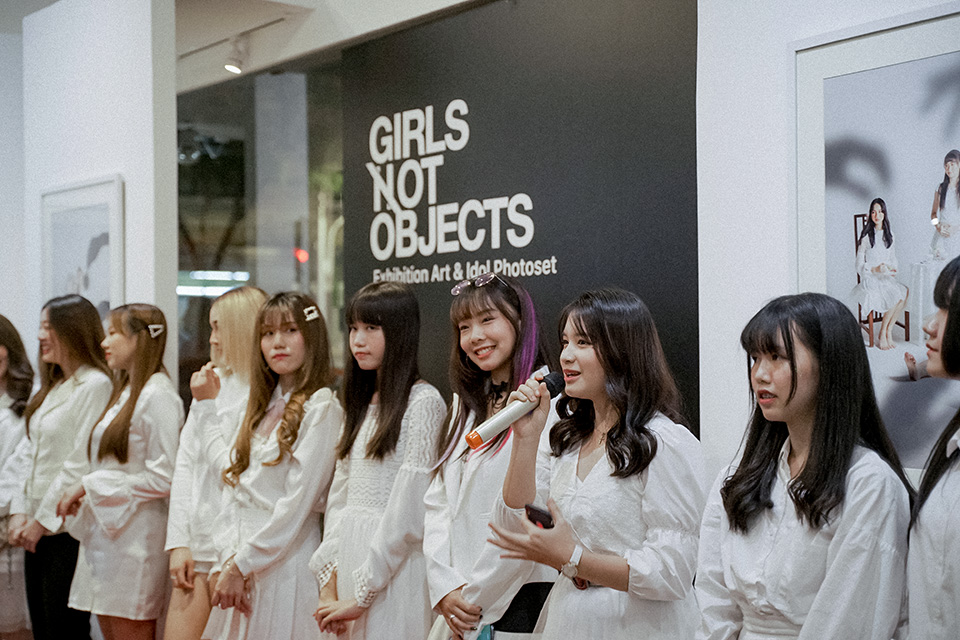
The exhibition featured 18 sets of photos that the students had shot of 23 female artists, including former teenage “idols”, who had experienced threats or harassment on social media.
The artists joined in the exhibition ceremony and shared stories about how sexual objectification in the media had affected their mental, emotional, and physical health. “Girls are also human beings who cannot be sexually objectified,” one of them said. “We should respect their dignity and value.”
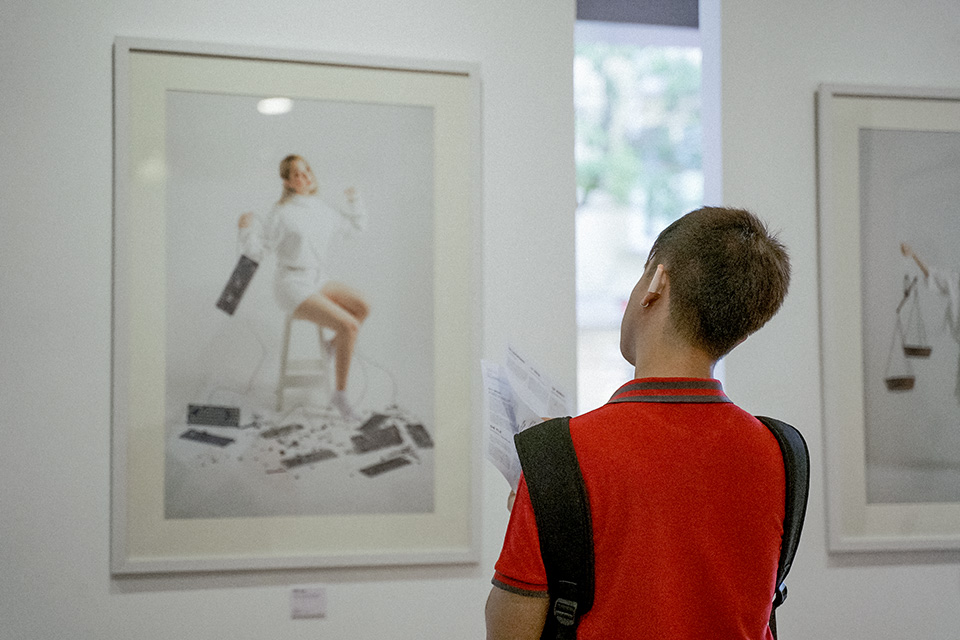
Each photograph was paired with a message about objectification, such as:
- “If we value human[s] based entirely on how they look rather than what truly lies inside her, it would be as [if] we look at them the same way we look at vases. An object, devoid of life and soul.”
- In violating their privacy and criticizing them without restraint, we often forget that “public figures” are also people, just like us.
- The marketers of the entertainment industry call for artists to create public personas that are not their real selves, in order to develop a fan base. That can lead to an identity crisis.
- Freedom of expression has been abused on social media with postings that sexually harass artists and violate their personal space.
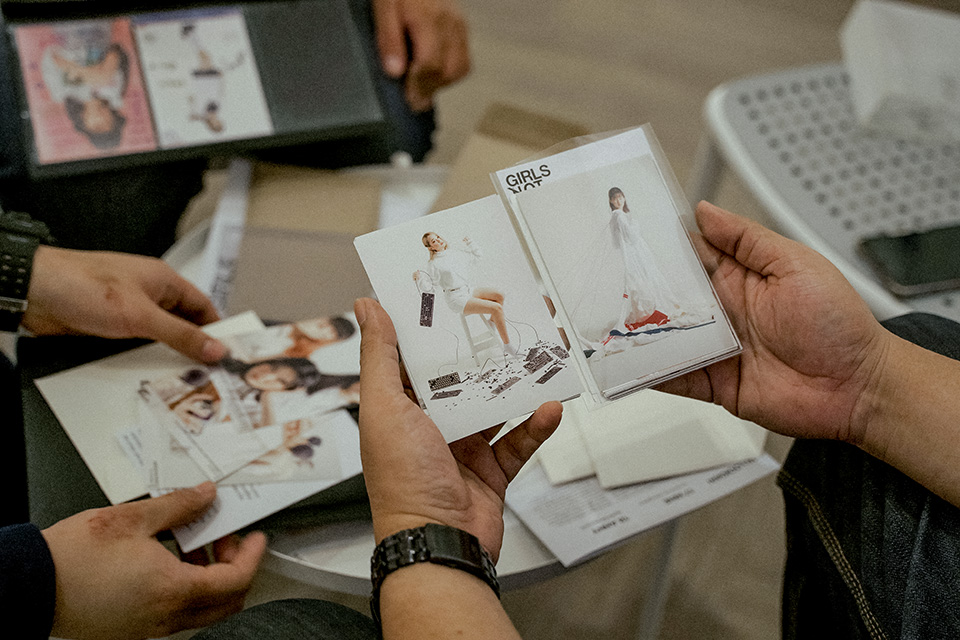
A Chulalongkorn University student who was among the 232 people who visited the exhibition said he had not been aware of the issue. “Now, I know my new responsibility as Generation Equality,” he said, referring to a new UN Women campaign.
Said Araya: “Of course, we know this exhibition and our works cannot change people’s mindsets at once, but the people who came to this exhibition will start to think more about these problems. That is the first step towards solving this problem.”
